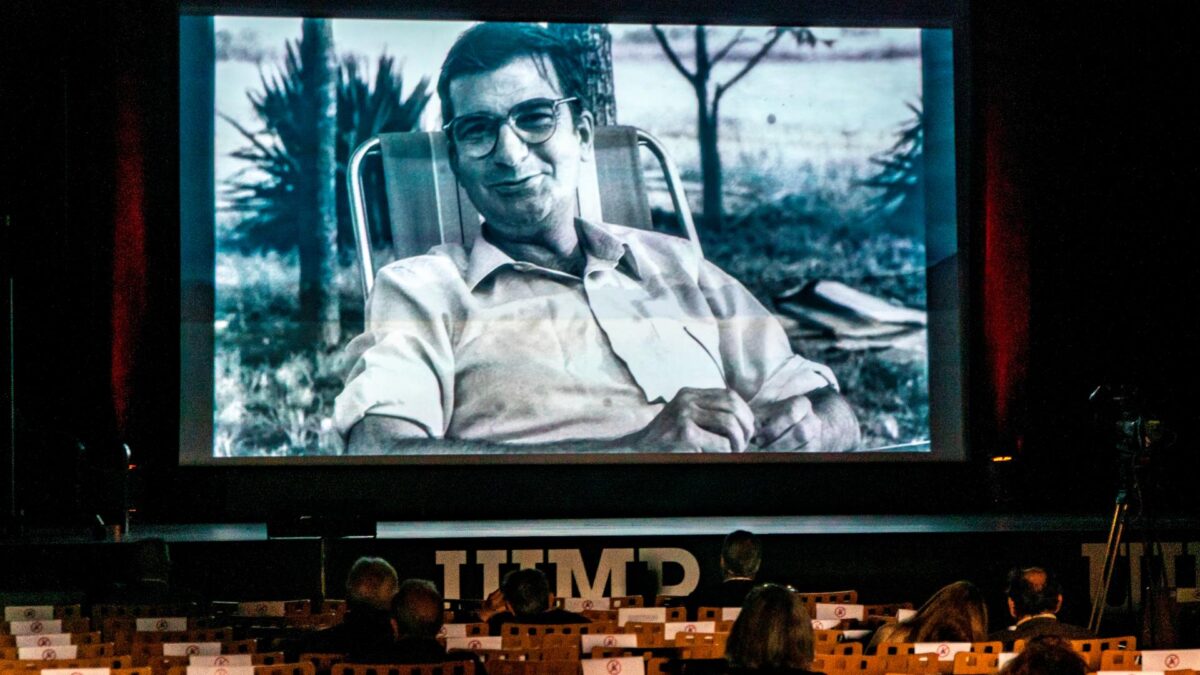Galdácano’s Landscapes
‘Because that is the question: if Bildu is not HB, why do they insist on looking like they are? Why not expel Sortu from the coalition and name a true man of peace, who condemns violence in no uncertain terms?’

ROMÁN G. AGUILERA | EFE
The effort some leaders of the PSOE and Podemos are making to divorce Bildu from ETA is laudable. Their court journalists are inundating our impoverished public sphere with stories that seek to dissociate the abertzale [separatist] formation from terror and in this way to legitimize their agreements with the Government. They repeat the catechism with monk-like discipline, but, as believers are wont to do, they step around some fundamental facts.
The book of arguments says that Bildu is not ETA. It is not even Herri Batasuna, insofar as the group comes from different places. They bring back the words of people like Oskar Matute, who comes from Izquierda Unida (Ezker Batua), and who in 2004 came out against violence in the Basque parliament. Matutes’ speech was, as they would have it, an example to show that Bildu’s genealogy is crossbred and that therefore its relationship with HB is contingent. This story is prepared with the usual instructions: every government has negotiated with ETA; Aznar said ‘Basque liberation movement’; Maroto held that one had to talk to Bildu: the Basque PP has signed many agreements with them, the right is invoking the specter of terrorism because that is its principal electoral card…
In general these arguments fit into the fallacy of tu quoque (you too), which consists of rejecting the reasoning in question by referring to the personal inconsistency of the one who puts it forth.That is why the most interesting argument is the one that would have us believe that the realtionship between Bildu and HB is indirect, circumstantial, insignificant, and that HB —now Sortu—is only a bad dream that has dissolved in the democratic wash.
Political opportunity makes us believe fascinating things. Arnaldo Otegi, Bildu’s coordinator at present, was previously the general secretary of Sortu, the spokesman for Batasuna, a member of the political-military wing of ETA and of its military wing after the division in 1984. Otegi has never repented his militancy nor has he condemned the violence. The only thing he has condemned has been «repression». Yesterday, for example, Sortu’s account lamented the arrest in Belgium of Natividad Jaúregui, who was ated for the assassination of Lt. Coronel Ramón Romeo.
Otegi was elected the general coordinator of EH Bildu with 84% of the votes. If the militants in the group did not want to be identified with him, I suspect that they would have elected another leader. Because that is the question: if Bildu is not HB, why do they insist on looking like they are? Why not expel Sortu from the coalition and name a true man of peace, who condemns violence in no uncertain terms? In the best possible case, only 16% of the Bildu militants disavow HB, and not enough to force a split on the part of those who are manifestly opposed to violence.
Yesterday, 21 November, marked twenty years since Ernest Lluch’s assassination. Pedro Sánchez remembered the date with a tweet that began with an opportunely vague formula: «Twenty years ago terrorism assassinated Ernest Lluch». Terrorism, without further elaboration. The President’s ambiguity was interpreted as a gesture toward Bildu, which has today become his partner of choice for the approval of the national Budget.
I went so far as to suggest to him another way to honour Lluch. It involved getting in touch with Íñigo Hernando Arriandiaga, the mayor of Galdácano for EH Bildu, and demand that he take down all of the photographs of Iñaki Krutxaga —Lluch’s murderer— which adorn the streets of the town. If the aim is to honour a victim, why not begin by banning homages to his executioner?
Together with the photographs of Krutxaga I am sure they will find one taken of Jon Bienzobas Arretxe, who is also a local. The Town Council is fond of him; he assassinated Francisco Tomás y Valiente in 1996, and that has earned him a special place in the heart of a town that has brought forth such illustrious gudaris [soldiers] as «Thierry» or «Txapote».
In a recent interview with the newspaper El País, when asked if Spanish society was prepared to normalize Bildu, José Luis Ábalos suggested that we should take a ride through the Basque country to see for ourselves how people live. I imagine he was referring to the landscape in Galdácano.
